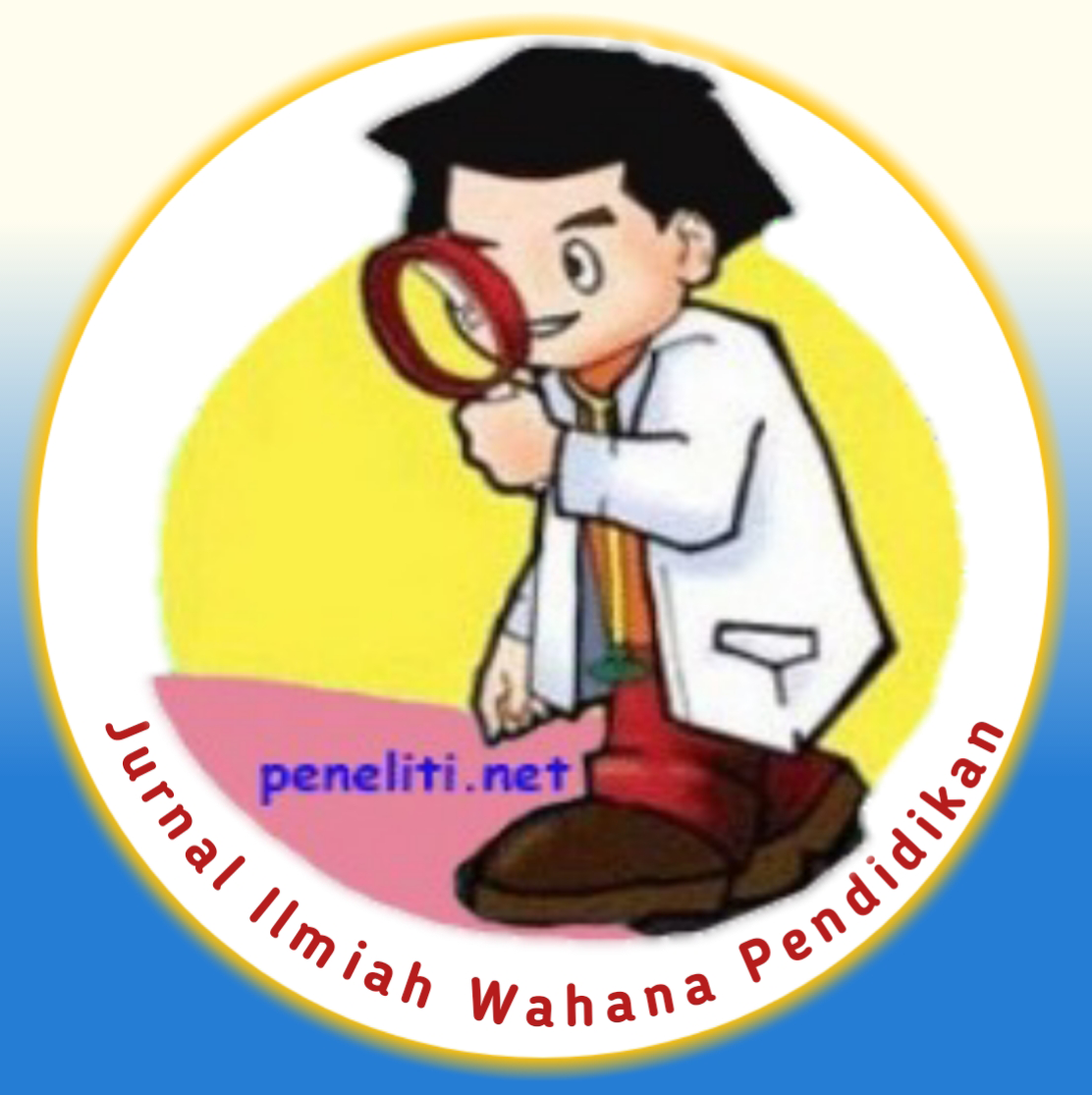Penerapan Pendekatan Cooperative Learning Tipe Think Pair Share (TPS) Berbantuan Media Pembelajaran Interaktif Menggunakan Aplikasi Educandy Untuk Meningkatkan Kemampuan Pemahaman Konsep Siswa Kelas 3 Pada Pelajaran Matematika
Abstract
This research is motivated by the problem of students' low understanding of concepts in Mathematics learning at SD Purwakarta. Therefore, in this study, the application of the Think Pair Share (TPS) cooperative learning approach was carried out with the help of interactive media using the educandy application. The purpose of this study was to find out how the activities and students' conceptual understanding skills when applying the Think Pair Share (TPS) cooperative learning approach assisted by educandy interactive media. The type of research used was Classroom Action Research (PTK) which was conducted in 2 cycles, each cycle was held in 2 meetings. The research subjects were 20 class III students. The research instrument was an observation sheet and test results for students' conceptual understanding abilities. In cycle I the average score reached 62.6 with a percentage of achieving KKM of 60%, in cycle II it increased with an average score of 86.8 with a percentage of achievement of KKM of 90%. Student activity in cycle I reached an average of 3.8 in the good category, in cycle II it increased with an average of 4.0 in the very good category. The conclusions of this study are 1) Learning using the cooperative learning approach of the TPS type assisted by interactive learning media using the educandy application can improve students' conceptual understanding abilities; 2) Learning by applying the TPS-type cooperative learning approach assisted by interactive learning media using the educandy application has an influence on students' conceptual understanding abilities.
References
Afrilianto. (2012). Peningkatan pemahaman konsep dan kompetensi strategis matematis siswa smp dengan pendekatan metaphorical Thingking. Program Studi Matematika STKIP Siliwangi.
Al-Tabany, T. (2015). ). Mendesaian Model Pembelajaran Inovatic, Progresif dan Kontekstual. Surabaya: Prenadamedia Group.
Al-Tabany, T. I. (2014). Mendesain model pembelajaran. Jakarta: Prenadamedia Group.
Arikunto, S. S. (2008). Penelitian Tindakan Kelas. Jakarta: Bumi Aksa.
Asma. (2006). Model Pembelajaran Kooperatif. Jakarta: Depdiknas.
Dania, R. s. (2020). Peningkatan Proses Pembelajaran Tematik Terpadu Menggunakan Model Cooperative Learning Tipe Think Pair Share di Sekolah Dasar.Peningkatan Proses Pembelajaran Tematik Terpadu Menggunakan Model Cooperative Learning Tipe Think Pair Share di Sekolah Dasar. Jurnal Pendidikan tambusai, 2624-2636.
Duha, A. K. (2012). Penerapan Model Think Pair Share terhadap Pemahaman Konsep. Jurnal pendidikan matematik, 1(1).
E, S. R. (2010). Cooperative Learning Teori, Riset dan Praktik. Bandung: Nusa Media.
Fahrurozi. (2011). Penerapan Pembelajaran Berbasis Masalah untuk meningkatkan kemampuan berpikir kritis dan komunikasi Matematis Siswa Sekolah Dasar. Jurnal penelitian pendidikan UPI, 76-89.
Gunawan, L. d. (2020). The Impact of Covid-19 Pandemic on Learning Implementation of Primary and Secondary School Levels. . Indonesian Journal of Elementary and Childhood Education, 58-63.
Hamalik, o. (2014). Proses Belajar Mengajar. Jakarta: Bumi Aksara.
Hamdayama, J. (2014). Model Dan Metode Pembelajaran Kreatif Dan Berkarakter. Bogor: Ghalia indonesia.
Haris, J. A. (2013). Evaluasi Pembelajaran. Yogyakarta: Multi presindo.
Hendriana, R. S. (2017). Hard Skills dan Soft Skills Matematik Siswa. Bandung: Refika Aditama.
Huda. (2015). Cooperative Learning “Metode, Teknik, Struktur Dan Model Penerapan. Yogyakarta: Pusta pelajar.
Hudoyo. (2005). Teori Belajar untuk Pengajaran Matematika. Jakarta: Depdikbud.
Jones. (2002). Menjadi Guru Profesional. Bandung: PT. Refika aditama.
Lie. (2005). Mempraktikkan Cooperative Learning di Ruang-ruang Kelas. Jakarta: Grasindo.
Maulana. (2017). Pengaruh Model Pembelajaran Kooperatif Tipe Think Pair Share (TPS) Terhadap Pemahaman Konsep Matematis Siswa (Studi pada Siswa Kelas VIII Semester Genap SMP Negeri 23 Bandarlampung Tahun Pelajaran 2016/2017). Skripsi jurnal.
Muhlisrarini, A. H. (2014). Perencanaan dan Strategi Pembelajaran Matematika. Jakarta : Raja Grafindo Persada.
NCTM. (2000). Principles and Standards for School Mathematics. NCTM.
nyunt, T. d. (2015). Learning Strategy With Groups On Page Based Student. International jurnal, 2(1):2.
Purwanto. (2006). Prinsip-Prinsip dan Teknik Evaluasi Pengajaran. Bandung: Remaja rosdakarya.
Rusman. (2016). Model-Model Pembelajaran. Jakarta: PT.Raja Grafindo Persada.
Shoimin, A. (2014). Model Pembelajaran INOVATIF dalam Kurikulum 2013. Yogyakarta: Ar-ruzz media.
Slavin. (2008). Cooperative Learning. Bandung: Nusa Media.
Sugiyono. (2008). Metodologi Penelitian Kuantitatif dan Kualitatif. Bandung: Alfabeta.
Sumarno, U. d. (2005). Pembelajaran Matematika untuk Mendukung Pelaksanaan Kurikulum Tahun 2002 Sekolah Menengah. Makalah pada seminar pendidikan matematika FMIPA universitas gorontalo.
Sunita. (2014). TPS(Think-Pair-Share): An Active Learning Strategy to Teach Theory of Computation Course. Internasional journal of education research and technoligy, 5(4):62.
Wari, S. &. (2010). Model-Model Mengajar CBSA. Jakarta: Rineka Cipta.
Yudhanegara, L. d. (2015). Penelitian Pendidikan Matematika. Bandung: PT. Refika aditama.
Yuniarti. (2015). Penerapan Pembelajaran Kooperatif Tipe Team Assisted Individualization (TAI) melalui Pendekatan Kontekstual untuk Meningkatkan Kemampuan Pemecahan Masalah Matematis Siswa Kelas VII C SMP N 2 Imogiri Bantul. Skripsi.




